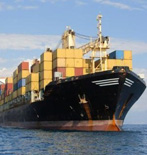A growing economy creates jobs, raises living standards, maintains global competitiveness, and thus engenders positive attitudes and optimism about the future.
While many policymakers seem intent on focusing on either economic stimulus or austerity, IPI believes that the economy can grow consistently and at higher rates than we’ve experienced in the last decade, and we reject the idea that economic growth contains within itself the seeds of its own demise through inflation, the business cycle, and erroneous Phillips Curve assumptions. Therefore, economic growth should be elected officials’ primary policy goal at the federal, state and local levels, and it’s the organizing principle of our policy work at IPI.
Whatever limitations may exist on economic growth, they should not be self-imposed through counterproductive tax policy, overbearing regulations, ill-conceived monetary policy, trade protectionism, or hostility toward skilled and ambitious immigration.
More Spectrum Needed to Avoid Wireless Traffic Jams
If the FCC would reallocate more of its time and resources to releasing spectrum and less of it to micromanaging the broadband industry, that would be a win-win for the U.S. economy.
Rand Paul Proposes the Boldest Tax Reform Plan Yet
Paul's plan would “blow up” (his words) the incomprehensible U.S. tax code and start from scratch with a simple, low and fair tax.
Coalition Letter to Congress in Support of TPA
TPA is a necessary step to get Congress moving on a long-stalled trade agenda.
The Madness of Minimum Wage Mania
The minimum wage mania has gotten out of hand. Politicians are trying to outbid each other—only they’re doing it with employers’ money, not their own. And they are getting a lot of support from low-paid workers who may soon find themselves unemployed.
With Bernie Sanders Running, Can We All Agree That The Democratic Party Is the Socialist Party?
Democrats used to get annoyed when critics accused President Obama of being a socialist. Not so with Vermont senator and presidential candidate Bernie Sanders.
Section 179 Reinstatement Good, But Clarity Is Better
A federal policy think-tank this week released a new document detailing the impacts of tax uncertainty on the ag sector, including the "will they or won't they" nature of Section 179 reinstatement. In commentary on Section 179 and ag tax issues, IPI President Tom Giovanetti says Congress' latest move on the 2014 expensing provision was essentially too little too late.
Tax Uncertainty Hurts: Congress Should Not Delay on Section 179
Congress must avoid the mistakes of 2014, when tax uncertainty delivered a harmful blow to the economy thanks to tax policies which were never clarified until the very end of the year, says IPI president Tom Giovanetti in “How Tax Uncertainty Harms Economic Growth.”
How Tax Uncertainty Harms Economic Growth: Agricultural Investment and Section 179
Frantic end-of-year passage of tax extenders does not encourage investment as intended. In 2014, investment in agricultural equipment was hampered by tax uncertainty over Section 179. Congress must recognize the need for certainty in tax policy by passing temporary measures earlier in the year, and by implementing overall tax reform that results in a simpler, more stable tax system.
Scammers are Swindling Taxpayers Out of $1,000 Per Household
President Obama believes redistributing money is the way to create jobs and spur economic growth, and thieves are helping him do just that.







